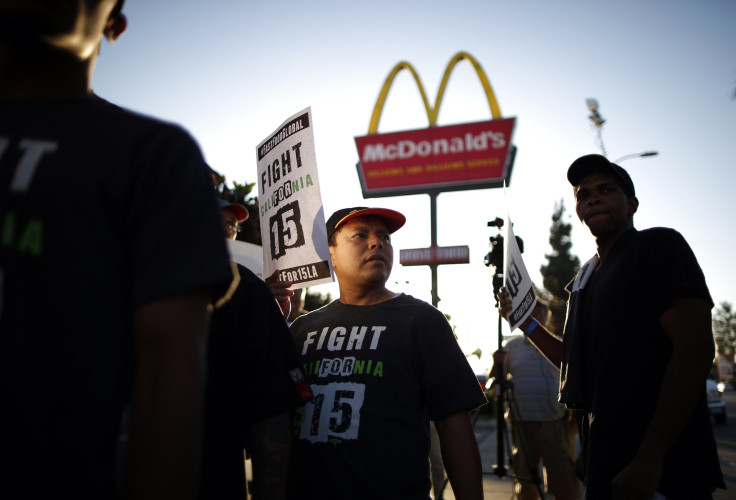McDonald's Could Be Responsible For Franchise Labor Practices

After months of protests from fast-food workers around the United States, the world’s largest hamburger chain may soon face investigations about its labor practices, which may set the groundwork for worker unions.
“The National Labor Relations Board Office of the General Counsel have investigated charges alleging McDonald’s franchisees and their franchisor, McDonald’s USA, LLC, violated the rights of employees as a result of activities surrounding employee protests,” the agency announced on Tuesday.
It said that McDonald’s could soon face investigation, given its designation as a joint employer in cases where workers at franchise locations filed complaints. This has never happened before, and the company said it will challenge the ruling.
“This is such a radical departure that it should be a concern to businessmen and -women across the country,” said Heather Smedstad, senior vice president of human resources for McDonald’s USA, to the Associated Press.
Labor groups celebrated the news. The Service Employees International Union (SEIU) called the ruling a “huge” victory.
One more (HUGE!) obstacle overcome in fast food workers' fight for #15AndAUnion! SHARE to spread the good news: http://t.co/tMqLMw8w6F #1u
- SEIU (@SEIU) July 30, 2014One of the suits claims that workers in three different states had to wait before clocking in to satisfy the company software that monitors the ratio of labor costs as a percentage of sales.
Since November 2012, the National Labor Relations Board Office has seen 181 cases involving McDonald's. Of those, just 43 have been found to have merit, with another 64 pending investigation.
That year was the beginning of a series of high-profile fast-food-worker strikes, in which employees called for better wages at McDonald’s and other chains.
“Employers like McDonald’s seek to avoid recognizing the rights of their employees by claiming that they are not really their employer, despite exercising control over crucial aspects of the employment relationship,” Julius Getman, University of Texas labor law professor, said to the New York Times.
© Copyright IBTimes 2024. All rights reserved.






















